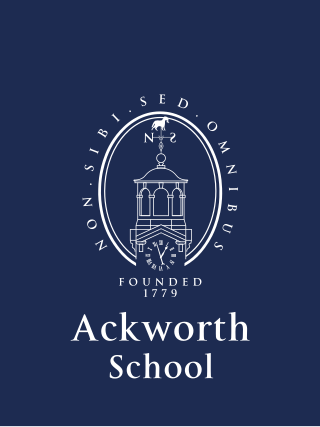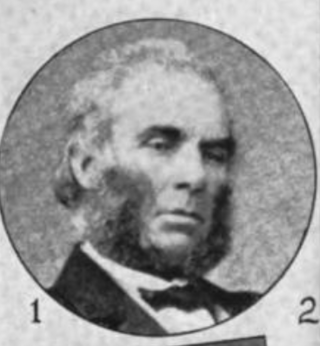The views of Quakers around the world towards homosexuality encompass a range from complete celebration and the practice of same-sex marriage, to the view that homosexuality is sinfully deviant and contrary to God's intentions for sexual expression. The Religious Society of Friends (Quakers) is a historically Christian religious movement founded in 17th-century England; it has around 350,000 members. In Britain, Canada, New Zealand and Australia, many Quakers are supportive of homosexual relationships, while views are divided among U.S. meetings. The majority (52%) of Quakers live in Africa, and though views may differ, the Kenyan Church of Friends does not support homosexual relationships.

The Yearly Meeting of the Religious Society of Friends (Quakers) in Britain, also known as the Britain Yearly Meeting, is a Yearly Meeting of the Religious Society of Friends (Quakers) in England, Scotland, Wales, the Channel Islands and the Isle of Man. It is the national organisation of Quakers living in Britain. Britain Yearly Meeting refers to both the religious gathering and the organisation. "Yearly Meeting", or "Yearly Meeting Gathering" are usually the names given to the annual gathering of British Quakers. Quakers in Britain is the name the organisation is commonly known by.

Rufus Matthew Jones was an American religious leader, writer, magazine editor, philosopher, and college professor. He was instrumental in the establishment of the Haverford Emergency Unit. One of the most influential Quakers of the 20th century, he was a Quaker historian and theologian as well as a philosopher. He is the only person to have delivered two Swarthmore Lectures.
Young Friends General Meeting (YFGM) is the national organisation for young Quakers in the United Kingdom. The name refers both to the organisation and to the General Meetings which are held in February, May and October each year, in various Quaker Meeting Houses in Britain. The organization also publishes a tri-annual magazine entitled The Young Quaker.

Ackworth School is an independent day and boarding school located in the village of High Ackworth, near Pontefract, West Yorkshire, England. It is one of seven Quaker schools in England. The school is a member of the Headmasters' and Headmistresses' Conference and SHMIS. The Head is Anton Maree, who took over at the beginning of the 2014–2015 academic year. The Senior Deputy Head is Nancy Newlands-Melvin and the Deputy Head is Jeffrey Swales.

Quakers are people who belong to the Religious Society of Friends, a historically Protestant Christian set of denominations. Members of these movements are generally united by a belief in each human's ability to experience the light within or "answering that of God in every one". Some profess a priesthood of all believers inspired by the First Epistle of Peter. They include those with evangelical, holiness, liberal, and traditional Quaker understandings of Christianity. There are also Nontheist Quakers, whose spiritual practice does not rely on the existence of God. To differing extents, the Friends avoid creeds and hierarchical structures. In 2017, there were an estimated 377,557 adult Quakers, 49% of them in Africa.
Elfrida Vipont Brown was an English writer of children's literature. She was born in Manchester into a family of Quakers. As a children's writer, she initially published under a man's name, Charles Vipont, which was a common marketing device by publishers at the time. She later wrote as Elfrida Vipont, and after her marriage sometimes as E. V. Foulds. She was also a schoolteacher and a prominent Quaker.
A Book of Discipline may refer to one of the various books issued by a Yearly Meeting of the Religious Society of Friends, setting out what it means to be a Quaker in that Yearly Meeting. The common name for this book varies from one Yearly Meeting to another and includes Book of Discipline, Faith and Practice, Christian Faith and Practice, Quaker Faith and Practice, Church Government and Handbook of Practice and Procedure. Each Book of Discipline is updated periodically by each Yearly Meeting according to the usual practice of decision making within the Religious Society of Friends.
Joseph Rowntree (Senior) was an English shopkeeper and educationalist.

Sidcot School is a British co-educational private school for boarding and day pupils, associated with the Religious Society of Friends. It is one of seven Quaker schools in England. The school is based in the Mendip Hills near the village of Winscombe, Somerset and caters for children between the ages of 3 and 18. Children aged from 3 to 11 are educated in Sidcot Junior School, which is located on its own site adjacent to the main campus. About 130 of the school's 525 pupils (2010) are in this junior school.
William Pollard (1828–1893) was an English Quaker writer and recorded minister. He was a prominent advocate of quietist Quaker theology, during a period of theological dispute within the Society of Friends.
Edward Hyslop Milligan, also known as Ted Milligan, was a Quaker historian and the former librarian at Friends House, London. He was the author of The Biographical Dictionary of British Quakers in Commerce and Industry 1775-1920, which includes entries for some 2,800 people. He received the 2009 Besterman/McColvin Award for this work and an Honorary degree from Lancaster University The ‘’Biographical Dictionary’’ was reviewed in ‘’Archives’’, ‘’The Friend’’, ‘’Friends Quarterly’’, ‘’Quaker Studies’’, ‘’Quaker History’’, and ‘’The Journal of the Friends Historical Society’’.

Josiah Forster was an English teacher and philanthropist. He was an early member of the British and Foreign Anti-Slavery Society in 1839 and a supporter of the British and Foreign Bible Society. Both he and his wife were senior figures in the British Quakers.
Lovell Squire (1809–1892) was a Quaker schoolteacher, meteorologist and writer of sacred verse.

Charles Gilpin was a Quaker, orator, politician, publisher, and railway director. Among his many causes were repeal of the Corn Laws, establishing world peace through the Peace Society, abolition of the death penalty, abolition of slavery, enfranchisement by providing freehold land for purchase, liberation of Hungary from the Austro-Hungarian Empire, Hungarian exiles in England, the Poor Law, prison reform, and foreign relations. He was "a thorough liberal".
The Annual monitor is a list of British Quakers who died each year, between 1812 and 1919, including well over 20,000 persons. Most entries are basic data: age at death, date of death, names of parents or "widow of ...". Some entries have a "memorial" giving biographical detail and a strong religious message.
Charles Tylor was an English Quaker author. He was the founding editor of Quaker weekly publication, The Friend. He was a Recorded Minister of the Religious Society of Friends.

Henry Stanley Newman was a grocer, Quaker philanthropist, and author. He founded Leominster Orphan Homes, was active in the Religious Society of Friends, and edited The Friend publication for 20 years.

Daniel Harrison was an English tea and coffee merchant. He was a Quaker, and a founder of Harrisons & Crosfield.
Sarah Tuke Grubb, Quaker minister, writer and founder of a girls' school in Ireland.









